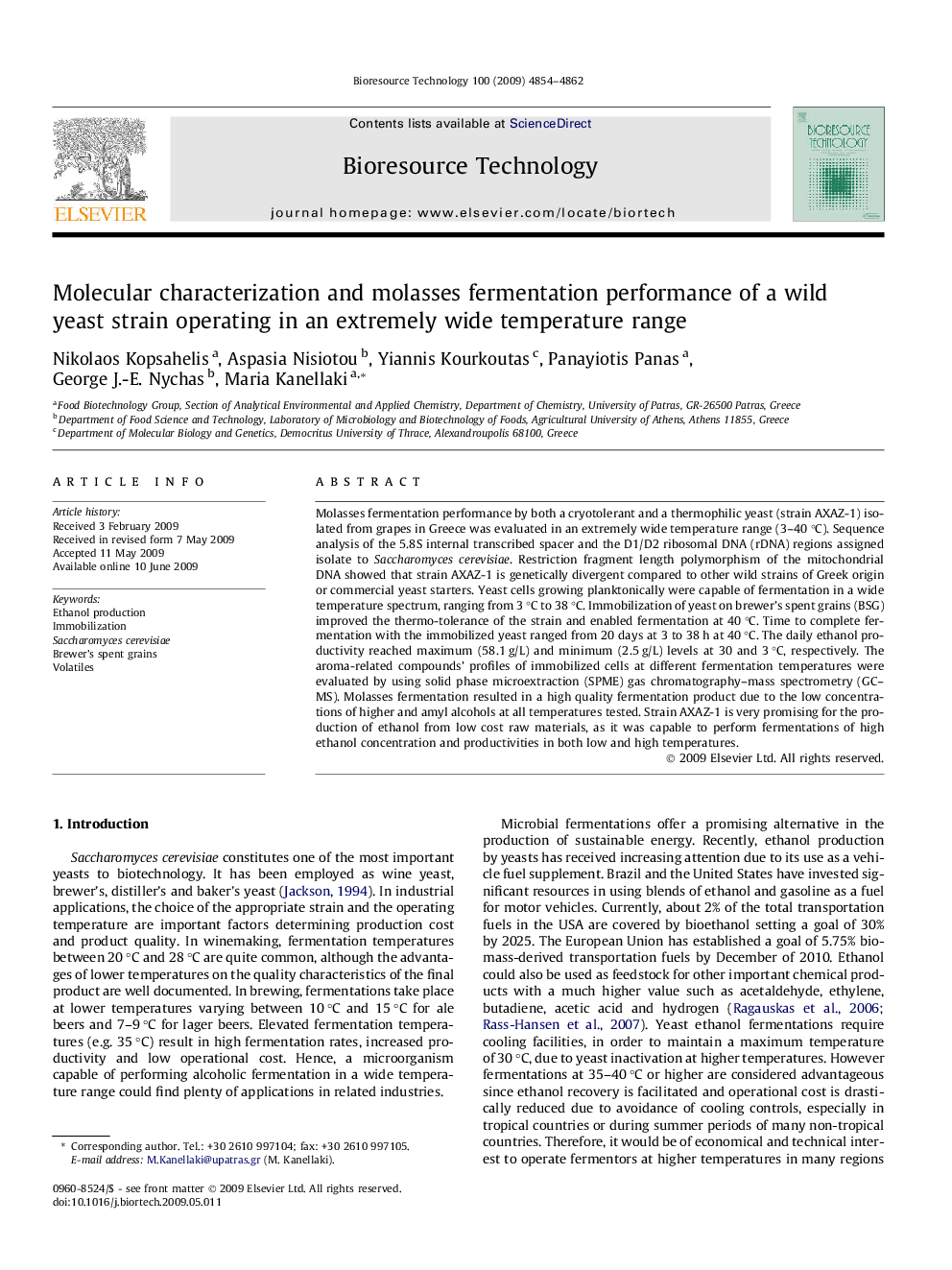| Article ID | Journal | Published Year | Pages | File Type |
|---|---|---|---|---|
| 683176 | Bioresource Technology | 2009 | 9 Pages |
Molasses fermentation performance by both a cryotolerant and a thermophilic yeast (strain AXAZ-1) isolated from grapes in Greece was evaluated in an extremely wide temperature range (3–40 °C). Sequence analysis of the 5.8S internal transcribed spacer and the D1/D2 ribosomal DNA (rDNA) regions assigned isolate to Saccharomyces cerevisiae. Restriction fragment length polymorphism of the mitochondrial DNA showed that strain AXAZ-1 is genetically divergent compared to other wild strains of Greek origin or commercial yeast starters. Yeast cells growing planktonically were capable of fermentation in a wide temperature spectrum, ranging from 3 °C to 38 °C. Immobilization of yeast on brewer’s spent grains (BSG) improved the thermo-tolerance of the strain and enabled fermentation at 40 °C. Time to complete fermentation with the immobilized yeast ranged from 20 days at 3 to 38 h at 40 °C. The daily ethanol productivity reached maximum (58.1 g/L) and minimum (2.5 g/L) levels at 30 and 3 °C, respectively. The aroma-related compounds’ profiles of immobilized cells at different fermentation temperatures were evaluated by using solid phase microextraction (SPME) gas chromatography–mass spectrometry (GC–MS). Molasses fermentation resulted in a high quality fermentation product due to the low concentrations of higher and amyl alcohols at all temperatures tested. Strain AXAZ-1 is very promising for the production of ethanol from low cost raw materials, as it was capable to perform fermentations of high ethanol concentration and productivities in both low and high temperatures.
